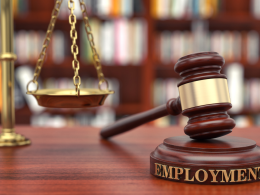In a world where technology is advancing at lightning speed and privacy concerns are at an all-time high, it’s more important than ever to understand the legal considerations surrounding these two intersecting issues. From data breaches to surveillance laws, the landscape of technology and privacy can be complex and overwhelming. In this blog post, we’ll explore some of the key legal considerations that businesses and individuals should keep in mind when navigating this rapidly evolving terrain. So buckle up and get ready for a deep dive into the intersection of technology and privacy!
What is the term “online privacy”?
Online privacy is the term used to describe the ways in which users protect their personal information online. The law governing online privacy is complex, and there are a number of different laws that apply to different types of websites and activities.
There are two main types of online privacy: data protection and information security. Data protection law governs how companies collect and use personal data, while information security law protects users from unauthorized access to their personal information.
Personal data refers to any information about an individual that could be used to identify them. This includes things like your name, address, email address, and password.
Companies can collect personal data without your permission if they have a legitimate reason for doing so. For example, a company might need to keep track of how many people are using its website so that it can improve its design or function.
Users have the right to know what personal data companies have collected about them, and they have the right to ask companies to stop collecting this data. Companies must also provide users with a copy of this data if they request it.
Users also have the right to do something with their personal data if they no longer want it stored by the company. This includes deleting it, controlling who has access to it, or transferring it to another company.
Why is online privacy important?
Online privacy is of growing importance as technology advances and more people access the internet through devices such as smartphones and computers. There are a number of legal considerations to take into account when protecting your online privacy, including the fact that most websites are not governed by national privacy laws.
The US Constitution does not explicitly protect individual privacy, leaving it up to state legislatures to enact specific protections. However, the Fourth Amendment prohibits unreasonable searches and seizures, which could be interpreted to apply to government access to personal information collected online. The EU Data Protection Directive sets out specific rules governing how personal data can be collected, used, and shared online.
If you are concerned about your online privacy, there are a few things you can do: stay informed about latest legal developments affecting online privacy; use protective measures such as encrypting your data or using a VPN; and contact an attorney if you have concerns about how your information is being used or shared.
What are the key legal considerations for technology and privacy?
There are a number of key legal considerations that technology companies and individuals must take into account when it comes to privacy and technology. For companies, this includes ensuring that the data they collect is lawful, protecting user data from theft or unauthorized access, and complying with data protection regulations. Individuals also need to be mindful of their right to privacy, which encompasses not only the physical space they inhabit but also the information they share online.
When it comes to online tracking, for example, companies must provide clear notice about what tracking is taking place and why it is being done. They must also ensure that users can opt out of tracking if they wish to do so. As for the sharing of personal information, companies must take appropriate steps to protect that information from being accessed or used by unauthorized individuals. Finally, individuals have the right to know what personal information about them is being collected and how it will be used. Companies should provide such disclosures in a clear and concise manner, preferably in advance of collecting such information.
How do these considerations apply to the internet?
As the internet has become a more integral part of society, so too has the question of how it impacts privacy. The internet is an ever-growing source of information and entertainment, but it can also be used to exploit and harm people.
When it comes to online privacy, there are a few key considerations that attorneys need to take into account. For one, people should be aware of what information they’re sharing online. They should also be careful about what personal information they post in public forums or on social media platforms, as this data may be accessible to others. In addition, people should always use caution when downloading or using software or applications that require access to their personal information.
When it comes to law enforcement and the internet, things can get tricky. Law enforcement officials have a responsibility to protect society from crime, but they also have responsibilities under the Constitution to protect individual privacy rights. In some cases, law enforcement officials may need access to personal information in order to investigate crimes. However, there are often ways for law enforcement officials to obtain this information without violating someone’s privacy rights. It’s important for individuals to know their rights and understand the laws governing the internet so they can exercise them wisely.
Conclusion
As technology advances and our lives become more connected, it is important to be aware of the ways in which our personal data is used and shared. By understanding the legal implications of these developments, you can make informed decisions about how best to protect your privacy. In this article, we have discussed some of the key issues that you should keep in mind when it comes to technology and privacy, including data protection laws, Facebook data sharing policies, and online advertising practices. Hopefully this has given you a better understanding of what is happening around you and where your rights may lie. If you have any questions or concerns about how your personal data is being used or shared, don’t hesitate to contact a lawyer for advice.









